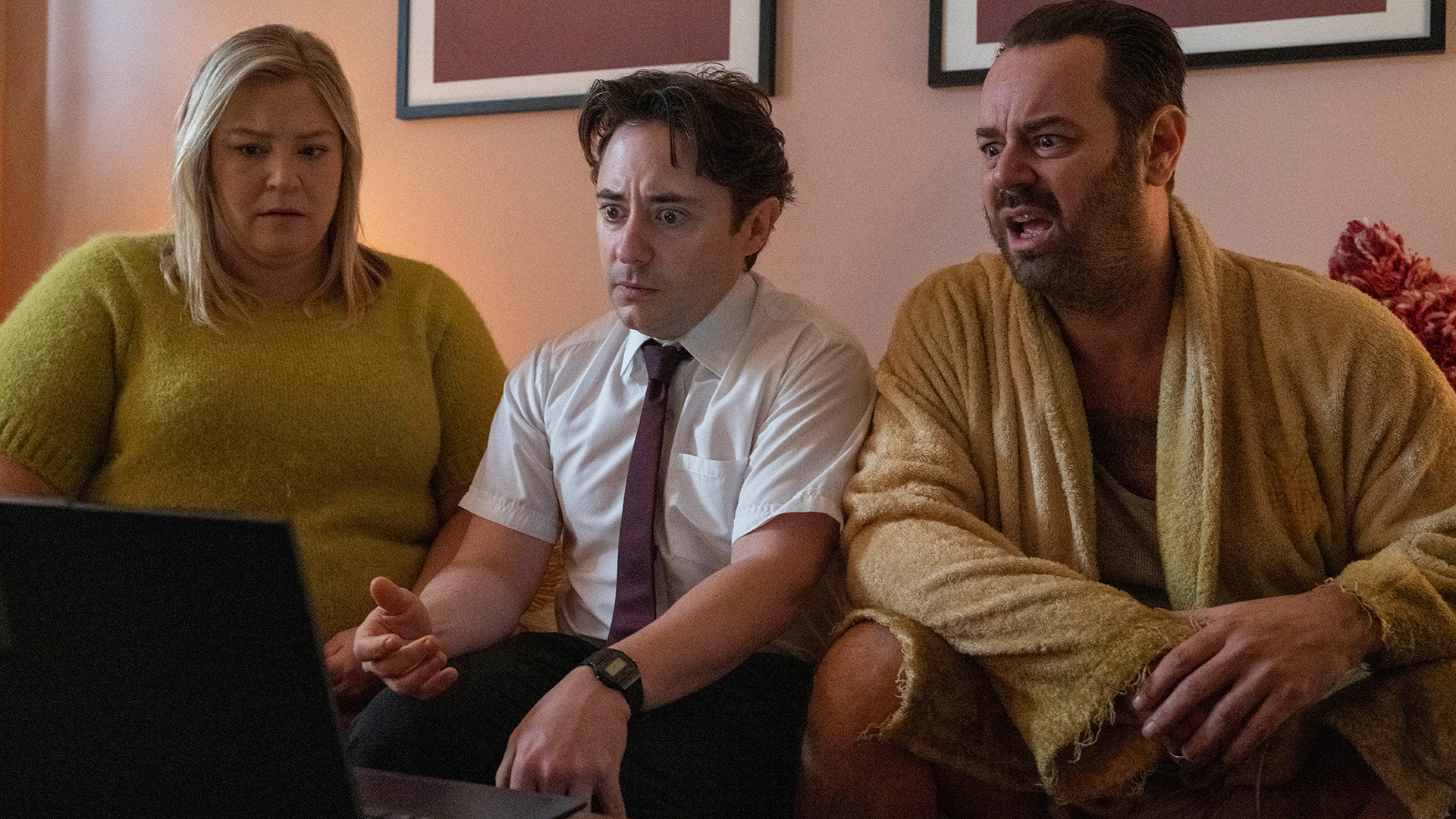Murnaghan 10.06.12 Interview with Nigel Farage and Ken Livingstone on Europe
ANY QUOTES USED MUST BE ATTRIBUTED TO MURNAGHAN, SKY NEWS
DERMOT MURNAGHAN: Spain has finally asked Europe for financial help for its banks. It follows sizeable bail outs for Greece, Ireland and Portugal of course and in fact the Spanish Prime Minister, Mariano Rajoy, is giving a news conference right now. We’ll bring you the details and what he has to say later on in our news, termed this bail out, well that’s how they’ve termed it but as politicians look at how to sort out the current crisis, could greater integration be the answer? I am joined now by the leader of the United Kingdom Independence Party, UKIP of course, Nigel Farage and the former Mayor of London, Ken Livingstone, a very good morning to you both. Do you both agree, Nigel do you agree that European intervention or eurozone intervention is the best way forward if they want to keep the euro alive?
NIGEL FARAGE: It is utter madness. It is the reinforcement of failure. The better thing to do, the braver thing to do is to recognise that those Mediterranean countries should never have joined the euro in the first place and that actually by keeping everything propped up with bail out after bail out and another one bites the dust we hear this morning with Spain, all we’re doing is prolonging the misery. We’ve got countries here that are now trapped inside an economic prison, youth unemployment rates over 50%, desperation, large scale public protests and unless they get out and devalue and put some stimulus back into those economies, I am fearful for the human cost, let alone the economic cost in those countries so no, let’s break it up in an orderly fashion.
DM: And worth the huge collateral damage in the interim, the consequences of things like that.
NF: That collateral damage, that damage is going to happen anyway and all we’re doing is making sure that when it does come it’ll be even bigger.
DM: So have done with it, Ken Livingstone?
KEN LIVINGSTONE: Well it’s not often I agree with Nigel but that’s exactly the right analysis. The euro should have been currencies in economies of equal strength, a northern bloc of countries built around Germany, Austria and so on.
DM: And the UK?
KL: The UK and France could just about have made it in but none of the Mediterranean countries and after the Spain problem is solved it will be on to Italy. Rather than lock Europe into a decade where the kids have no chance of work and permanent economic malaise, it would be better to recognise that. I just don’t think that they have the courage to do it amongst the politicians because let’s remember, because when they set up the euro the politicians who did it saw this as a step that would lead to further integration because if you’ve got a common currency, you’ll eventually have to have a common treasury, a common financial structure and it was stealth, it was trying to create a United States of Europe by stealth.
NF: But Ken, when you advocated us joining …
DM: You sound like a UKIP recruiter.
KL: But this is the economic reality.
NF: This is interesting but you yourself ten years ago thought that Britain should join the euro, do you now think it’s a good thing that we didn’t?
KL: Yes, most probably it is but we would have had to restructure our economy if we joined the euro away from the dependence on finance, we’d have had to rebalance the economy more towards the modern high tech industry that Germany has got but I right the way through this warned that you should actually start with a small core and once you pulled all these countries in it was doomed to fail when you hit problems like this.
DM: It’s interesting you pulled Ken Livingstone in that direction, Nigel Farage, because obviously you talked then about whatever survives from the euro, they do need to have closer fiscal and ultimately political integration. Is that the way you would have seen Britain going if they had gone in to Europe?
KL: When you look back at it, the original idea of the European, what was then the Common Market, was to achieve a United States of Europe and in the post-war period the idea that you achieved a United States of Europe, never again another World War II or that sort of catastrophe, that was a driving force. Young people in Europe today must think that World War II is somewhere like doing Napoleon or something, it is not a relevant factor for them, it hasn’t affected their thinking.
NF: But that would have been okay if in the case of the British, in a referendum back in the 70s, we’d said to people if you say yes you are not just voting for a Common Market, you’re voting for political union and the problem is, and the anger I think in this country and now right across Europe, is they realise that politicians with a big political dream have imposed this upon them.
KL: I voted no because we were being lied to.
DM: Talking about the United States of Europe, let’s stay with the USA analogy, it works, clearly works as an economic entity and it is different states joining together with a currency, different rates of inflation, different rates of unemployment. Could the UK work in the United States of Europe?
KL: America only created the dollar after they had been America for then 100 years and …
NF: And a civil war, and a civil war don’t forget.
KL: And the common currency was the last stage of it. The simple fact is the world’s moved on. Yes, in the 50s and 60s with all the excitement about the United States of Europe but I don't think it’s possible to achieve it and the separate nations won’t give up their identity. We need to recognise this should be a trading bloc and Britain should be orientating itself not towards further integration into Europe but to see investment from China and India and Brazil…
NF: This is wonderful, I can’t believe what’s happening here!
KL: But I have been saying this for years.
NF: He is absolutely right and there has been a lot of talk about George Osborne’s piece this morning where Osborne says Europe must push on to a full union which I find astonishing but we ourselves, he said in the article, must integrate more deeply in the single market particularly in financial services and Ken points to the important one, we’ve got to refocus Britain towards being part of a global economy and not just focus on Europe.
DM: Specifically on that, whether we like it or not financial services is still a huge earner and you knew that while you were Mayor of London, a huge earner not just for London but for the whole economy …
KL: But you have got to have a range of jobs as Germany has. It has kept its manufacturing, it has modernised and upgraded it and working class people in Germany can get the chance of a good secure job with a decent pension. We allowed all of our manufacturing to be wiped out and we need to rebuild and rebalance our economy. We are much more likely to do that focusing on China and on India and Brazil because whatever happens with Europe, however Europe goes, there is never going to be great dynamic growth coming out of Europe. We should be looking for the areas that for the next century will dominate worldwide, let them come to London.
NF: Which is why, Ken, which is why we have got to leave the EU because part of being an EU member means we are forbidden from making our own trade deals across the rest of the world. I have just got back from Switzerland, a little country that trades with Europe freely but is able to forge her own – she has a free trade deal with Japan and we don’t and that must be the way forward for us.
DM: Okay but we have been discussing the world as you wish it to be or Europe as you wish it to be in terms of the breakup of the euro. For Angela Merkel that’s not going to happen, she says it stays together so how does Britain deal with that situation while that progress?
KF: In a sense Nigel might get what he wants by stealth, that we remain part of what is a trading bloc but the rest of it becomes much more politically integrated and we just have to live with it.
DM: Okay, a referendum, you know what you think, a referendum Ken Livingstone?
KL: A referendum on in or out? It’s fine if people want to have it but I don’t think you can leave the trading bloc. I just don’t think there is any desire from Germany or anywhere else for a United States of Europe any more.
NF: No, that’s the point. Euroscepticism isn’t just in Britain, it’s right across the whole of the continent now.
DM: Okay, well gentlemen thank you very much indeed, Ken Livingstone, Nigel Farage there.




